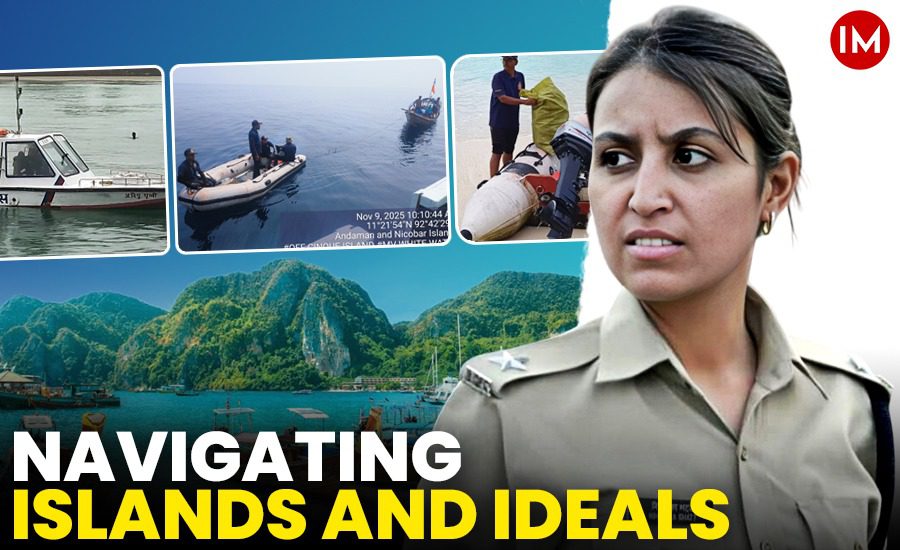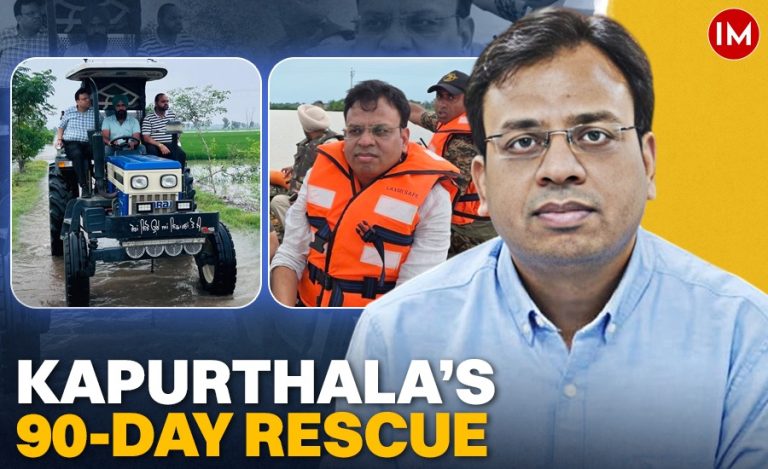When most people think of policing, they imagine crowded cities, traffic snarls, or bustling streets. But for IPS officer Niharika Bhatt, the sea is her beat. A 2015-batch IPS officer of the AGMUT cadre, Ms. Bhatt currently serves as the Superintendent of Police, Marine Force, Andaman & Nicobar Islands, where her responsibilities stretch far beyond land – across hundreds of islands scattered in the Bay of Bengal.
FROM THE HILLS TO THE ISLANDS
Ms. Bhatt’s journey in the police service has taken her across some of India’s most diverse landscapes. “I started my career from Dehradun, and then moved on to Chandigarh, Puducherry, and Andamans,” she recalled while talking to Indian Masterminds. “I am very thankful to the service for giving me a chance to work in such diverse geographical conditions – from the mountains to the islands.”
Each region, she says, taught her something unique about leadership, adaptability, and empathy. In the hills of Uttarakhand, she dealt with the challenges of disaster management in a terrain prone to landslides and flash floods. In Puducherry, a coastal region, the focus shifted to cyclone preparedness. And in the Andamans, she faced yet another dimension of disaster response — island-based isolation during long monsoons.
“The kind of disaster management required in the hill state of Uttarakhand is completely different from that of a coastal state like Puducherry, which is even more different from the Andaman & Nicobar Islands,” she explains.
Working in such varied conditions, she says, has made her more resilient — both as an officer and as a person. “With every transfer, I have had to adjust to the place, its socio-economic conditions, and the varied crime profiles,” she adds. “Having gotten a chance to experience cultures of different parts of the country has been a true blessing.”
POLICING ACROSS 836 ISLANDS
The Andaman & Nicobar Islands comprise 836 islands, of which only 38 are inhabited – a geographical reality that makes policing here uniquely challenging. As the SP of both the Marine Force and the Indian Reserve Battalion (IRBn), Ms. Bhatt oversees teams spread from Diglipur in North Andaman to Campbell Bay in Nicobar, with look-out posts even on uninhabited islands.
“The biggest challenge of working in the islands is the logistics of inter-island movement,” she says. “We move men and material through vast distances, and during the six-month-long monsoon, it becomes even tougher.”
But challenges often bring out the best in leadership. Ms. Bhatt has strengthened coordination between agencies like the A&N Administration’s Directorate of Shipping Services, the Police Marine Force, and the Indian Coast Guard to ensure smooth operations.
“Inter-island movement is best managed through inter-agency coordination,” she explains. “Each marine organization has its own set of expertise and asset management, so depending on the requirement, we collaborate for movement of men and material.”
A DEEP SENSE OF Fulfilment
Among her many postings — from Anti-Corruption to Traffic to Armed Police — Ms. Bhatt finds her current role in the Marine Force to be the most fulfilling.
“Coastal security is an extremely important role of the police force here, and having the opportunity to lead a small team of police personnel tasked with operating and maintaining boats to ensure this security has been a true joy,” she says with a smile.
Under her leadership, efforts have been made to enhance asset capabilities and repair marine vessels to ensure optimal performance. The Marine Force also takes a scientific approach to patrolling — mapping vulnerable islands and ensuring they are regularly visited by police teams.
“The number of islands and the task of ensuring that they are being patrolled by police teams is an important task that has been very fulfilling to plan and execute,” she explains.
MOMENTS THAT DEFINE A CAREER
For Ms. Bhatt, the satisfaction of being in the Indian Police Service doesn’t come from rank or recognition, but from the quiet victories of justice served and lives helped.
“Not one, but the life of a police officer is marked with moments that fill you with gratification for becoming a police officer,” she reflects. “It is a fact that no one comes to us in times of happiness. People only come to the police as the last resort, when things are beyond repair and they are in despair. So in such a situation, to be able to help a needy person, give them justice, and be fair to them is a huge reward.”
Her words reveal a deep empathy – a quality that defines her leadership as much as her professionalism.
STEERING WITH STRENGTH AND SENSITIVITY
As one of the few women heading a Marine Force unit in India, Ms. Bhatt stands as an inspiring example of strength, adaptability, and compassion in uniform. Whether managing the complexities of island policing or leading from the front in adverse weather conditions, she embodies a rare blend of courage and calm.
Each posting, she believes, has shaped her outlook and strengthened her resolve to serve with integrity. “Working in such diverse places has made me more resilient as a police officer,” she says. “Every new challenge has been a lesson in patience, adaptability, and leadership.”
From the mountains of Dehradun to the waves of the Andamans, Ms. Niharika Bhatt’s journey is a testament to the spirit of Indian policing – rooted in service, strengthened by experience, and guided by empathy.
































